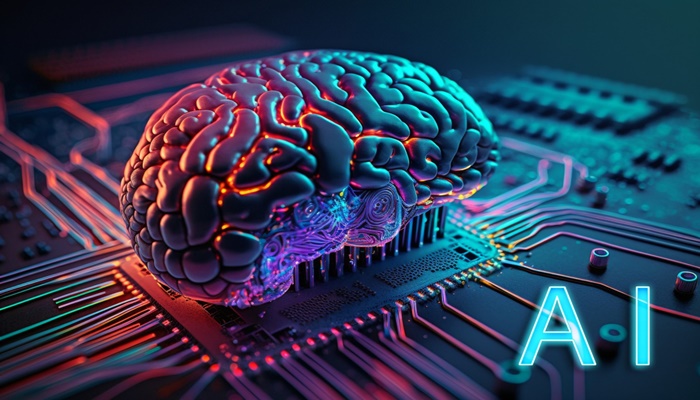At a time when artificial intelligence sparks both fascination and fear, Google CEO Sundar Pichai offers a calm, future-facing view: AI is not our enemy — it’s our ally.
Speaking at the recent Bloomberg Technology Summit in San Francisco, Pichai made a case for optimism, seeing AI as a powerful productivity partner rather than a job-stealing menace.
‘I’ve always looked at AI as a foundational technology,’ said Pichai. ‘Like the Internet or electricity, it will reshape everything. But that doesn’t mean we become obsolete — it means we evolve.’
In a world where headlines warn of mass layoffs and job automation, Pichai shared eight practical strategies that professionals — especially in tech — can adopt to stay ahead. His message was clear: Don’t fear the wave. Learn to surf it.
1. Automate, but be the architect
One of the strongest points Pichai made was the importance of creating automation, not just being subject to it.
‘Don’t just operate automation. Build it,’ he urged.
This means tech professionals should aim to understand how automation tools — such as robotic process automation (RPA) systems, AI assistants and workflow engines — actually work.
If you’re only pushing buttons created by someone else, your role may eventually be replaced. But if you design or optimise those buttons, you remain indispensable.
What does this involve?
Learning scripting languages like Python or mastering platforms like Sapier or UiPath can help professionals build basic automations.
For deeper AI integration, familiarity with APIs (application programming interfaces) and cloud tools like Google Cloud’s AutoML or Vertex AI is a huge plus.
2. Understand what’s under the hood
To thrive in an AI-infused world, it’s no longer enough to use tools. You need to understand how they think.
Pichai emphasised the need to learn foundational concepts like transformers, tokenisation, and embeddings — core building blocks behind generative AI models like ChatGPT and Google Gemini.
Let’s break those down:
Transformers: These are machine learning models designed to process sequential data (like text) by paying ‘attention’ to the relationship between words even if they’re far apart in a sentence. They power most of today’s leading AI systems.
Tokenisation: This refers to how text is split into chunks (tokens), often words or even sub-words, so the AI can process them. For example, ‘ChatGPT’ may be broken into ‘Chat’ and ‘GPT’.
Embeddings: These are numerical representations of words or phrases that allow the AI to understand context. Think of it as a way for the model to know that ‘bank’ in ‘a river bank’ means something different than ‘money in the bank’.
Understanding these doesn’t mean you become a full-time AI researcher; gaining literacy, however, helps professionals use these tools with precision and responsibility.
3. Double down on human strengths
One of AI’s limitations, Pichai reminded the audience, is that it lacks intuition, emotional intelligence and ethics. These are areas where humans must lead.
Skills like critical thinking, empathy, storytelling, team management and ethical judgment will grow in value as AI continues to master logical tasks.
‘In the age of AI, emotional intelligence and integrity become even more essential,’ he said. ‘We need leaders, not just coders.’
4. Master prompt engineering
‘Talking to AI is a skill,’ said Pichai — and he’s right.
Prompt engineering is the art of crafting clear, targeted instructions for large language models (LLMs) like ChatGPT or Gemini. It’s how users coax the best results from AI. For example, telling an AI: ‘Summarise this for a child under 10 in 100 words’ is more effective than just saying ‘Explain this.’
As AI tools become central to daily workflows, prompt fluency could become as important as Excel once was. Already, job listings for AI prompt engineers are on the rise.
5. Manage your career like a product
Another sharp insight from Pichai: Treat your own career like a tech product — constantly evolving, versioned and upgraded.
That means:
- Conducting regular self-assessments
- Setting clear learning milestones
- Seeking feedback loops through mentorship or peer reviews
- Updating your skillset like you would patch a software bug
‘Careers won’t move in straight lines anymore,’ he said. ‘They’ll zigzag with technology and agility will matter more than pedigree.’
6. Get serious about AI ethics
The discussion on AI isn’t complete without acknowledging its dangers — from bias in algorithms to job displacement, misinformation and privacy concerns.
Pichai, who has long advocated for responsible AI development, called on professionals to embed ethics into every project.
Whether you’re writing code, designing systems or leading teams, you need to ask hard questions: Is this fair? Is this transparent? Who could be harmed?
Google itself has published its AI Principles, a framework to guide responsible innovation. But as Pichai noted, ‘Policies alone aren’t enough. Culture matters. Individual judgment matters.’
7. Learn to lead hybrid teams
As AI tools become co-workers, knowing how to manage this human-machine hybrid becomes a vital leadership skill.
‘The great leaders of tomorrow will know how to delegate not just to people but to AI,’ Pichai said.
That could mean automating administrative follow-ups while mentoring human teammates. Or using AI to simulate user feedback before presenting a real product. It’s less about replacing people and more about augmenting them.
8. Be vocal in public conversations
Lastly, Pichai encouraged professionals to step into public debates on technology.
From AI regulation to job security to digital rights, the next decade will be shaped by the voices that show up — online, in policy rooms and in boardrooms. Engineers, designers, teachers and users all have a role to play.
‘If we stay silent, decisions will be made without us,’ he warned.
Pichai’s secret hobby — ‘vibe coding’
In a lighter moment, Pichai revealed he still loves to code. He now uses tools like Cursor (an AI-powered code editor) and Replit, a platform for writing and sharing code in the browser.
‘I call it vibe coding,’ he said. ‘It’s just delightful to talk to your code editor and build things in minutes. It reminds me why I fell in love with engineering.’
This confession underscores a key theme: Even Google’s CEO finds joy in experimenting with the very AI tools he promotes. And that spirit of play, learning and adaptation is something every professional can embrace.
Sundar Pichai’s blueprint for the AI era is not about fear or fantasy — it’s about responsibility, readiness and reinvention. Whether you’re a developer, designer, analyst or leader, the age of AI demands curiosity, adaptability and ethical courage.
As he said: ‘AI will be your co-pilot. But you’re still the pilot.’
Source – https://m.rediff.com/getahead/report/sundar-pichais-future-proof-career-tips/20250611.htm




















